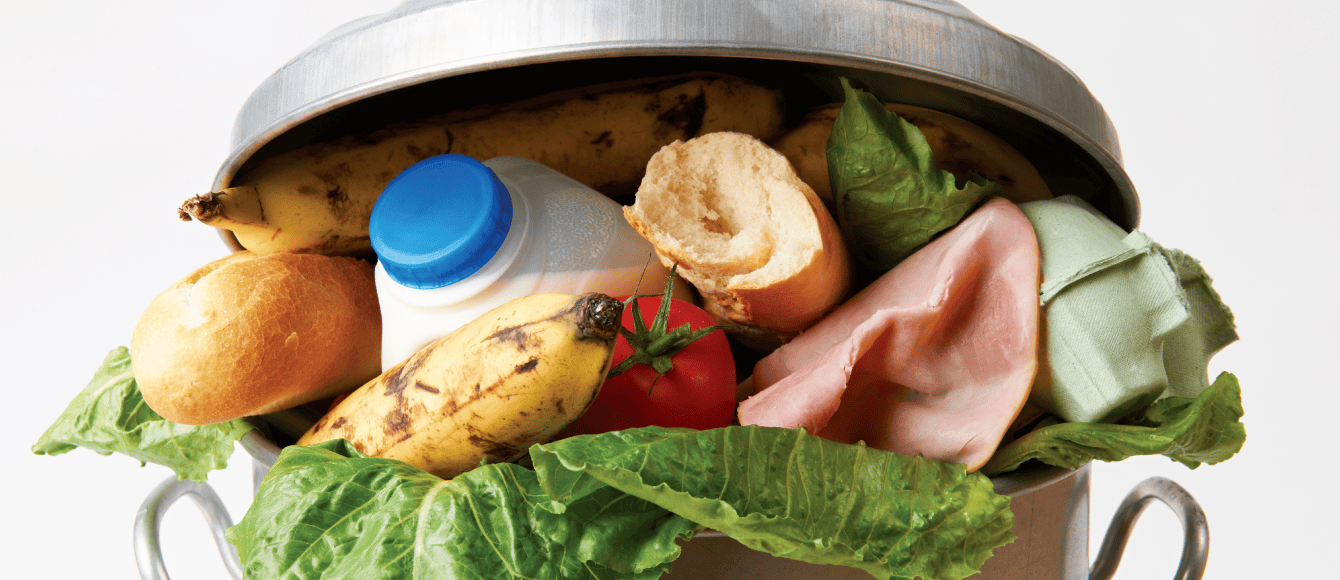Have you ever thought about how much food you or your family throws away? Whether it’s because we over purchase groceries or grow tired of leftovers, food waste has become a common issue as it impacts our environment, use of resources and wallets. In fact, over one-third of the food produced in the United States is never eaten.
Here are some tips to help ease the burden of food waste:
- Organize Your Fridge
Rotate older food to the front so it’s not forgotten. Where you store certain foods can also affect how long they stay fresh. Yogurt should be tightly sealed and stored on the top shelf, while cheese should be stored in its own drawer because it absorbs other flavors easily. Most refrigerator doors seem to be made to hold a gallon of milk, but it will last longer on the bottom shelf where it will stay cold. - Get Creative
Find new ways to turn extra ingredients into new family favorites. Produce past its prime? Use it in soup, stir fry or a smoothie. Leftover whipping cream is great when folded into scrambled eggs or mashed potatoes. Plan weekly recipes with ingredients that can pull double duty – like a Monday night Skillet White Chicken Lasagna and a Wednesday night Honey Mustard Yogurt Chicken Skewers. - Move Perishables to the Freezer
If you can’t use it right away, freeze it. This goes for prepared leftovers, as well as items like milk and cheese. You can also portion out tablespoons of herbs or sauces in ice cube trays and pop one out to use in a recipe when you need it.
Understand what expiration dates mean on food you purchase. While it can be difficult to remember where and how to store every food, the USDA’s FoodKeeper app can help. It offers tips for how to store and cook more than 400 foods. It can even send alerts when food in your refrigerator is nearing the end of its recommended storage!
Dairy cows and farmers are also doing their part to keep waste out of landfills. Cows consume food by-products from farms, breweries, restaurants, and other sources that are not suitable for human consumption. These by-products are included in cows’ carefully balanced diets, allowing them to be converted to nutritious milk rather than sent to landfills. In fact, 32-41 million tons of by-products per year are consumed by U.S. dairy cows, representing approximately one-third of their diet.
Some dairy farms and food companies use anaerobic digester systems to turn their trash into treasure. These systems break down organic materials, like food waste and cow manure, in a process called anerobic digestion which creates biogas that can be used for electricity, heat, compressed natural gas and even vehicle fuel.
As we grow to understand the environmental impact that we have on our planet, we all need to do our part to reduce food waste!

